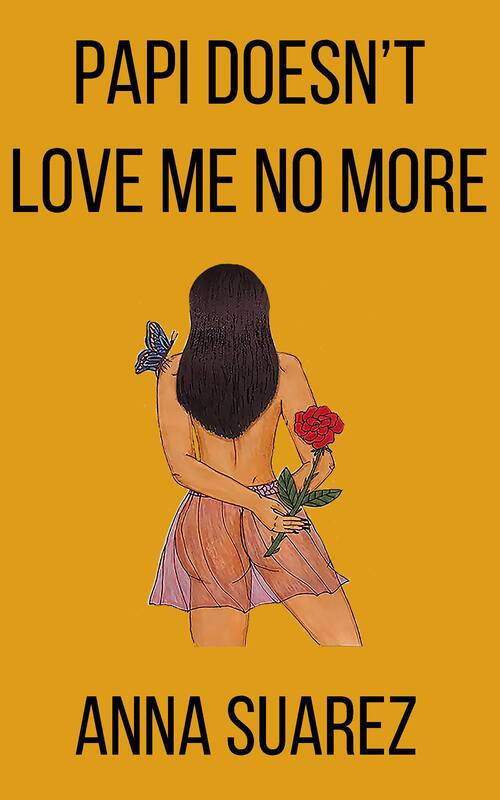|
The Breadcrumbs widget will appear here on the published site.
Before you call her those names...
By Alex Carrigan
Oftentimes, it's difficult to explain just why poetry affects us the way it does. It's easy to say it sounds or reads nicely, or that there's a line or phrase that resonates with the reader, but it's another thing to truly understand the complexity and detail that goes into writing a poem. The same can be said for trying to understand a person from a different background. While it may be easy to assume certain things about the person in general, it's easy to miss the elements that brought them to their current state and to their identity. And the best way to truly understand is to let them reveal themselves to you in their own unique voice.
In her debut poetry collection, Anna Suarez looks at why Papi Doesn't Love Me No More, the "me" being a woman of a certain background. From what we gather, this is a woman who has loved, been hurt, been exploited, and has been all of these because of her sexual nature. The narrator in these poems often talks about the words she's been called, how men look at her and react to her body, and the troubles it comes from being pigeonholed as such. Yes, the narrator of this pieces is a woman who loves sex, but Suarez's poems show her as more of that. In the first poem, "Okcupid," we see the narrator talk about her favorite tea and Lost in Translation, wondering "if only/Living could be/herbs, flowers, honey." Similar lines appear throughout the collection, showing a real love and care towards olfactory senses and tastes. It feels like Suarez is gathering the items for a healing ritual, each sense, smell, and taste adding to the understanding of the narrator's self and her struggles. What also helps with the characterization and style of the collection is the prose poems that come throughout. Each one adds allows the reader to place themselves in a scene and understand the narrator a bit more, often through how she reacts to certain moments and events. "Pearl" looks at the various transactions she has undertaken and how they often hurt her more than they reward her, while something like "Narcissus Flower" looks at how she approaches a new space and how that can define her. Overall, Papi Doesn't Love Me No More is a beautiful and haunting look at the female body and sexuality. Through its masterful use of the senses, this collection allows readers of all kinds to understand the challenges and double standards women face for being sexually active and engaging in sex work. It's not the sort of collection everyone can easily take, but it's one that's worth the challenge. It's worth seeing just how Suarez crafts each piece and what rises up from each poem as the ritual continues.
0 Comments
CommentsYour comment will be posted after it is approved.
Leave a Reply. |
AuthorWrite something about yourself. No need to be fancy, just an overview. Archives
July 2024
Categories
All
|



 RSS Feed
RSS Feed






